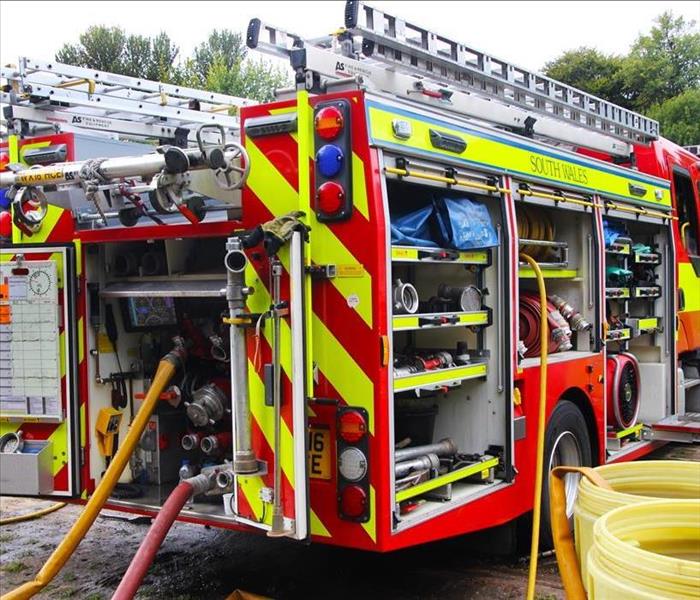Teaching Children Fire Safety
10/28/2021 (Permalink)
For adults fire safety is for the most part common knowledge. Don’t play with heat sources, never leave your stove unattended, etc. This knowledge is important to pass on to your children early to help keep your family safe. Playing with heat sources like lighters, stoves, and matches is one of the leading causes of residential fires and injuries for children under ten. Keep reading below to get some tips on teaching your kids fire safety.
Flammable items and other heat sources are not toys - Make sure that they know that any heat generating household objects or flammable items are not toys. This includes items like glue guns, hair straighteners and other things that may not typically be thought about as potential fire starters by children. Be sure they understand the consequences and dangers of playing with fire.
Practice Fire Drills – In an emergency children might not have the focus to be able to think about what to do. Talk to your kids about what to do if there’s a fire in your home and how to get out. Make an escape plan that includes two different exit routes out of the house as well as a safe meeting point outside of the house, and then practice! The idea is in an emergency they won’t even have to think about it and already know what to do. It’s also important to make sure your child understands how to open your household windows and remove the screen to get out in case there are no doors available to exit from.
Test your smoke alarms – Smoke alarms should be tested once a month and have the batteries changed at least once a year. It’s a good idea to use when you set your clocks as a reminder to also change out the detector batteries. This is a great time to teach your children about smoke detectors as well. Show them what the alarm sounds like and what to do when they hear it, so they aren’t confused and scared having heard it for the very first time in a real emergency. You can include your fire drills in this by “having the alarm go off” and practice escaping the house when they hear it.





 24/7 Emergency Service
24/7 Emergency Service
